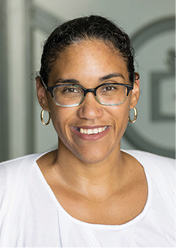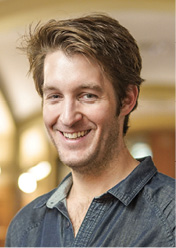
Collaboration is not always a given in the world of academic publishing. But when Vanessa K. Valdés and Nathan H. Dize—Vanderbilt graduates in Spanish and Portuguese and French and Italian, respectively—teamed up on a project in the field of Afro-Latinx studies, their shared passion for the subject, combined with shared history and mutual respect, proved fruitful.
Although their time at Vanderbilt did not coincide, the two met on academic Twitter because of their mutual interests. At a conference in New York, Valdés attended a presentation given by Dize, who earned his Ph.D. this summer. Dize remembers feeling under the weather and self-conscious about his presentation that day.
“After my talk, she sent a message to congratulate me on my presentation, and I felt both seen and accomplished—something that every student should get to feel when they need it most,” he says.
The two decided to work together when Dize pitched Valdés on a translation project for the series she edits for SUNY Press called Afro-Latinx Futures. Valdés was on board, not only due to their personal connection but also because she felt strongly that there was a place for translation studies in the field of Latin-American studies.
“Nathan and I have a connection based on love and respect for Haiti and its role in the hemisphere and an awareness of how Haiti has been marginalized in Latin-American studies,” Valdés says.

In November 2020, Dize’s translation of Makenzy Orcel’s novel Les Immortelles was published by SUNY Press. It tells the story of a group of women sex workers living and working in the heart of Port-au-Prince as a 7.0 magnitude earthquake shatters the city and life as they knew it. The story is told from the point of view of one of the survivors, an anonymous woman and former sex worker. Dize worked closely with Valdés, though not necessarily on the language aspect of the work. “Vanessa helped me articulate why I think Les Immortelles is such an important novel about women’s lives and intimacy even though it was written by and translated by men.”
Both scholars credit their time at Vanderbilt as central to their success. Dize will begin a position as visiting assistant professor at Oberlin College in the fall, while Valdés continues as professor of Spanish and Portuguese and director of the Black Studies Program at the City College of New York. The two share ideas for future projects and collaborations as well as a desire to work together again—a promising proposition.
—JOY RAMIREZ